 Movies and TV
Movies and TV  Movies and TV
Movies and TV  Humans
Humans 10 Times Scientists Were Absolutely Sure… and Absolutely Wrong
 Our World
Our World 10 Pivotal Moments for Life on Earth
 Movies and TV
Movies and TV 10 Most Realistic Medical TV Shows of All Time
 Creepy
Creepy 10 Eerie & Mysterious Ghosts of the Pacific Coast
 Weird Stuff
Weird Stuff 10 Typos That Accidentally Changed History
 History
History 10 Times Trickery Won Battles
 Technology
Technology 10 Awesome Upgrades to Common Household Items
 Misconceptions
Misconceptions 10 Hilarious (and Totally Wrong) Misconceptions About Childbirth
 Weird Stuff
Weird Stuff 10 Warning Labels That Exist Because Someone Actually Tried It
 Movies and TV
Movies and TV 10 Zombie Movies That Will Actually Terrify You
 Humans
Humans 10 Times Scientists Were Absolutely Sure… and Absolutely Wrong
 Our World
Our World 10 Pivotal Moments for Life on Earth
Who's Behind Listverse?

Jamie Frater
Head Editor
Jamie founded Listverse due to an insatiable desire to share fascinating, obscure, and bizarre facts. He has been a guest speaker on numerous national radio and television stations and is a five time published author.
More About Us Movies and TV
Movies and TV 10 Most Realistic Medical TV Shows of All Time
 Creepy
Creepy 10 Eerie & Mysterious Ghosts of the Pacific Coast
 Weird Stuff
Weird Stuff 10 Typos That Accidentally Changed History
 History
History 10 Times Trickery Won Battles
 Technology
Technology 10 Awesome Upgrades to Common Household Items
 Misconceptions
Misconceptions 10 Hilarious (and Totally Wrong) Misconceptions About Childbirth
 Weird Stuff
Weird Stuff 10 Warning Labels That Exist Because Someone Actually Tried It
10 Political Villains Who Have Never Faced Justice
Martin Luther King Jr. famously proclaimed that “the arc of the moral universe is long, but it bends toward justice.” Of course, that long arc means that tyrants, dictators, and war criminals often manage to escape punishment for their crimes. It might be frustrating, but many of the most notorious figures in recent history will never be brought to justice.
10Michele Bennett
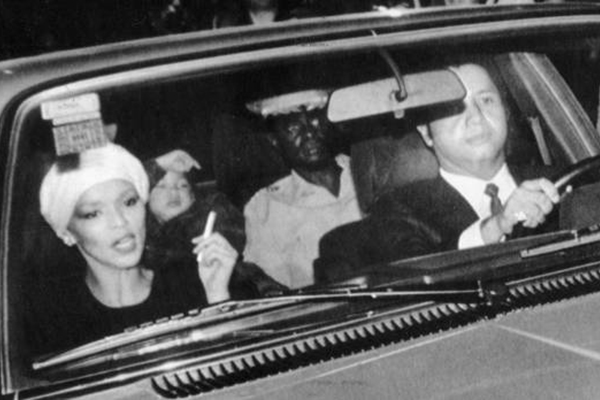
It would be unfair to call Michele Bennett the 20th century’s answer to Marie Antoinette—but only to Marie Antoinette. Together with her husband, the ruthless Haitian dictator Jean-Claude “Baby Doc” Duvalier, Bennett set new standards for callousness and greed, living a life of luxury even as her fellow citizens languished in the hemisphere’s worst poverty.
First, there was the couple’s ultra-lavish wedding, paid for by Haitian taxpayers and reputed to be one of the most expensive in history. This was followed by opulent parties and regular shopping sprees in Paris. Her palace’s air conditioning was frequently cranked up to freezing levels, just so Bennett and her pals had an excuse to strut around in their extravagant fur coats.
To be fair, the Duvaliers did sometimes give back to the less fortunate. For example, they were occasionally seen tossing dollar bills to starving peasants from their limo. Somehow that wasn’t enough, and an ungrateful population drove the couple into exile in 1986. Longtime friends of the US, they were whisked to safety on an American Air Force jet.
The pair divorced in 1993. In a bizarre development, Baby Doc returned to Haiti in 2011, where he was immediately arrested and likely would have been convicted were it not for Haiti’s bumbling legal system. Instead, the case against him dragged on until he died in October 2014. Bennett currently resides in the south of France. Given the debacle surrounding her ex-husband’s prosecution, it’s doubtful that she will ever face charges, even though evidence exists that extorted money was deposited directly into her personal accounts.
9Ieng Sary & Ieng Thirith
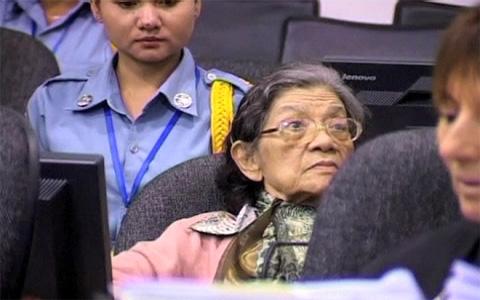
When the former Cambodian dictator Pol Pot died in 1998, people around the world were outraged. As the leader of the murderous Khmer Rouge regime, Pol Pot was the person most responsible for the slaughter of millions in Cambodia’s infamous “killing fields.” At the very least, he deserved to die in prison. Yet news reports showed his corpse lying in peaceful repose against a lush tropical forest. Imagine if Hitler, after orchestrating the Holocaust, had been allowed to retire to a cabin in the Bavarian Alps.
How could such a thing happen? Well, after the fall of the Khmer Rouge, many high-ranking officials retreated to remote jungle enclaves where they were protected by loyal guerillas. In the 1990s, the surviving leaders cut a deal to end the insurgency in exchange for immunity from prosecution. Thankfully, the amnesty didn’t hold forever. Beginning in 2007, many former Khmer Rouge leaders were ordered to stand trial for crimes against humanity. Among them was Ieng Sary, who had been Pol Pot’s foreign minister. His wife, Ieng Thirith, the regime’s minister for social affairs, was also charged.
Unfortunately, the 87-year-old Ieng Sary died during his trial. Ieng Thirith was released in 2012, after being found unfit to stand trial due to advanced Alzheimer’s disease. Now perhaps suffering from extreme dementia was sufficient reason to spare Thirith punishment. But was it appropriate that her husband should be honored with a lavish funeral?
8Alvaro Saravia
Father Oscar Romero, Archbishop of San Salvador, was one of the most public and fearless critics of the right-wing regime that seized control of El Salvador in 1979. On March 24, 1980, as Father Romero was presiding over Mass, he was shot and killed by a government operative. Six days later, government death squads rained bullets on mourners gathered at his funeral, killing at least 42.
These twin acts of violence helped prompt five major leftist groups to unite in opposition to the government, expanding the existing low-level conflict into an all-out civil war. Meanwhile, Father Romero is remembered as a martyr for the cause of human rights. In 1993, Pope John Paul II placed him on the path to sainthood. (He will be beatified on May 23, 2015.)
But what of Romero’s killers? The person who gave the order for Romero’s assassination was almost certainly Roberto D’Aubuisson, a politician and former army officer who directed right-wing death squads during the civil war. D’Aubuisson was also a personally bloodthirsty psychopath, known as “Blowtorch Bob” for his favorite torture method. Unfortunately, an amnesty clause included in the peace agreement allowed Blowtorch Bob, along with a host of other evildoers, to escape charges. He died of cancer in 1992.
D’Aubuisson was firmly implicated by Alvaro Saravia, who helped organize the murder and drove the assassin to the church. After fleeing the country at the end of the war, Saravia moved to America, where he delivered pizzas and eventually became a used car salesman in Modesto, California. In 2003, a California judge ordered Saravia to pay $10 million in restitution to one of Romero’s relatives. In response, Saravia fled a second time, and his whereabouts currently remain unknown. In 2010, he granted an interview from an anonymous location, in which he lamented that even his children “see me like Hitler.”
7Hannibal Gaddafi
In 2011, the news that pop superstar Beyonce had performed at the New Year’s Eve party of Hannibal Gaddafi, the son of Libya’s flamboyant dictator Muammar Gaddafi, was met with outrage. The singer reportedly received a cool $2 million for the gig, but was it worth it if it meant stroking the ego of one of the most spoiled and sadistic figures on the world stage?
Aside from the many human rights abuses committed by his father’s regime, Hannibal had personally been involved in numerous disturbing incidents, including assaulting his wife in a London hotel room, attacking three Italian police officers with a fire extinguisher, and driving drunk the wrong way down the Champs Elysees. Unsurprisingly, his family name shielded him from the consequences of those crimes. The one time he did receive a modicum of punishment for his behavior was in 2008, when he and his wife were detained in Switzerland for beating their servants. In retaliation, Muammar detained a pair of Swiss nationals on trumped-up charges, shut down Nestle’s Libyan subsidiary, and apparently tried to have Switzerland abolished by the UN.
When revolutionary forces finally brought down the Gaddafi regime, Hannibal fled along with other members of his family to neighboring Algeria. (The body of Muammar Gaddafi, meanwhile, lay in the refrigerator of a butcher’s shop in the city of Misrata.) In the aftermath of the revolution, the world learned of Shweyga Mullah, an Ethiopian national whose harrowing story became a symbol of the Gaddafi family’s depravity. Mullah had been a nanny for Hannibal and his wife, Aline. When she refused to beat the couple’s young son, Aline punished her by pouring a pot of boiling water over her body.
Hannibal’s brother, Saadi, has recently been extradited from Niger to Libya, where he faces the death penalty. Hannibal and Aline currently reside in Oman, where they have been granted political asylum. It’s doubtful that Beyonce will be playing any more of their parties.
6Dick Cheney
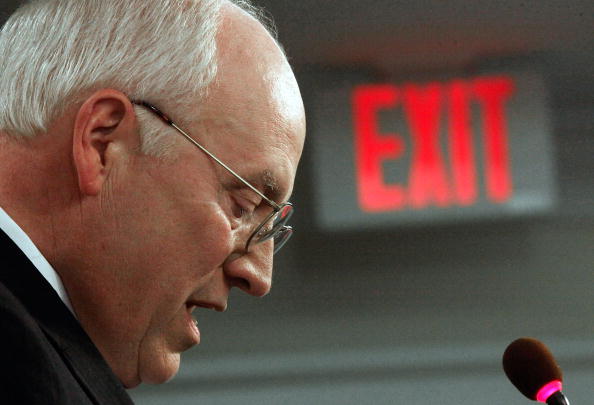
While the former vice president certainly isn’t as personally erratic as Hannibal, American leaders should be held to a higher standard than the bratty children of vile dictators, and Cheney deserves to be singled out for his vocal support of the CIA’s “enhanced interrogation program” (widely acknowledged to be a euphemism for torture). During the George W. Bush administration, Cheney was reportedly the program’s foremost proponent. He certainly remains its loudest apologist in the media.
While Cheney and his defenders have shied away from using the term “torture” for waterboarding and other interrogation techniques, other US politicians, ranging from President Barack Obama to Republican Senator John McCain, have been more forthright. McCain, a strong opponent of the program, pointed out that waterboarding was one of the crimes for which the US tried Japanese torturers after World War II.
The debate over torture subsided with the election of Obama, who ended the program when he took office in 2009. However, the controversy was briefly reignited in December 2014, when the US Senate issued its report on the CIA’s Bush-era practices, revealing that “the interrogation techniques were more brutal and employed more extensively than the agency portrayed,” and that “at least 26 detainees were wrongfully held and did not meet the government’s standard for detention.” The CIA was also found to have repeatedly lied about the program’s effectiveness.
Of course, none of this means that Cheney or anyone else involved in the torture program will ever stand trial, let alone serve time. As Richard Nixon famously put it: “When the president does it, that means that it is not illegal.” Nixon himself, though almost certainly guilty of perjury and obstruction of justice, received a full pardon from his successor, Gerald Ford.
5Anwar Congo
As a young man in Indonesia, Anwar Congo was a petty gangster who sold movie tickets on the black market—until he became swept up in the rise of Suharto, the ruthless commander who would eventually seize control of the government. Under Suharto’s brutal rule, Congo led a paramilitary group that slaughtered tens of thousands as part of an anti-Communist purge believed to have killed at least 500,000 people across the country.
Suharto resigned from office in 1998 and died 10 years later. Meanwhile, Indonesia never went through a process of coming to terms with the crimes of its past. Thus, Congo, a notorious mass murderer, still walks the streets with impunity today.
Most of the world had never heard of Congo until 2013, when he was the subject of an extraordinary documentary film called The Act of Killing. The film’s director, Joshua Oppenheimer, went a step beyond merely extracting a confession from his subject (who readily admits to all his past deeds anyway). Instead, flattering Congo with the idea of starring in a movie about his own life, Oppenheimer convinced him to participate in elaborate reenactments of his crimes. The result is a surreal cinematic experience, featuring re-creations of historical massacres performed by the same man who committed the actual acts some four decades earlier.
As the film unfolds, Congo becomes increasingly upset by this grim imaginative exercise. We see him gradually, hesitatingly, begin to confess feelings of regret to Oppenheimer. At one point, Oppenheimer convinces Congo to play the role of a victim of one of his massacres. This proves too much for Congo to handle, and the film ends with an image of him retching on a rooftop.
While accepting the BAFTA (British Academy of Film and Television Arts) award for best documentary, Oppenheimer took the US and Britain to task for their complicity in the crimes of the Suharto regime. Tellingly, those portions of Oppenheimer’s speech were omitted from the video BAFTA posted online.
4Zine El Abidine Ben Ali
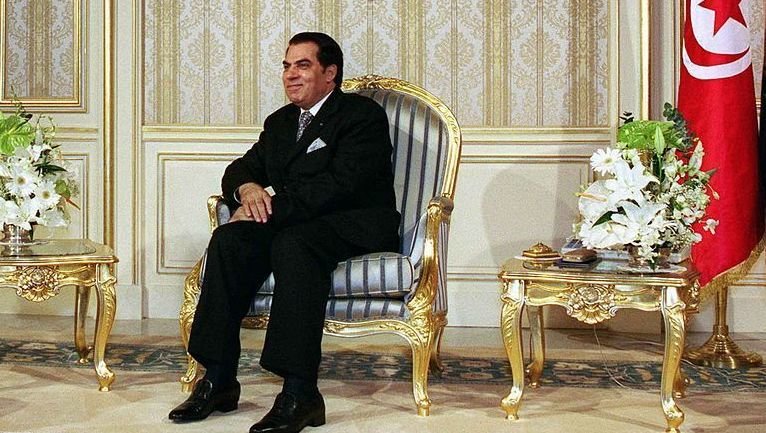
As president of Tunisia, Zine El Abidine Ben Ali was one of the world’s most notorious dictators. During his years in power, Tunisia was routinely ranked one of the worst countries for human rights and freedom of the press. Naturally, the unpopular Ben Ali kept getting reelected, usually by margins of around 90 percent.
The beginning of the end came on December 17, 2010, when a 26-year-old vegetable seller named Mohammed Bouazizi set himself on fire after having his vegetable cart confiscated by a policewoman, who allegedly also spat in his face. The injustice done to Bouazizi was taken up as symbolic cause by disaffected youth throughout the country, who for years had suffered through high unemployment and brutal oppression. Protests flared up, and soon the country was on the verge of a full-fledged revolution.
On January 14, 2011, Ben Ali dissolved his government and declared a state of emergency. Hoping to calm the situation, he called for an election to be held within six months. But by then it was too late. Realizing that his days in power were numbered, Ben Ali fled into exile, with his plane permitted to leave just before the military closed Tunisian air space. Having been refused landing rights by France, he went to Saudi Arabia, where he resides today.
Ben Ali’s overthrow marked the beginning of the “Arab Spring,” a series of revolutions and upheavals that swept the Arab world. In his absence, Ben Ali has been convicted of embezzlement and incitement to murder by Tunisian courts, but it is unlikely that he will ever return to the country to face punishment.
3Anastasio Somoza Portocarrero
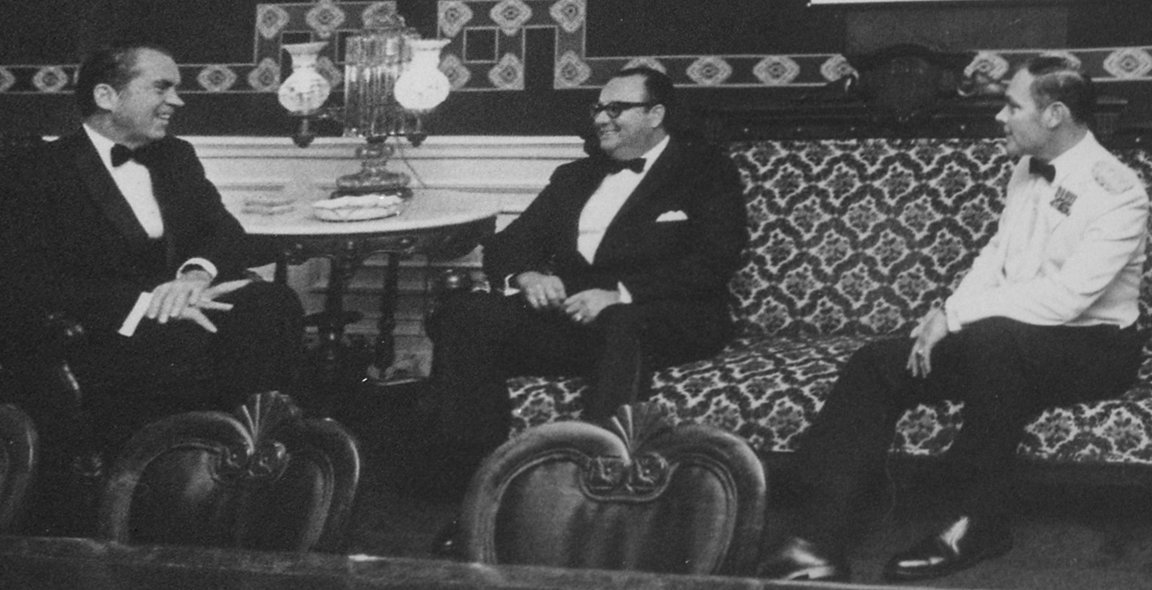
For generations, the Somoza family ruled Nicaragua with an iron fist. But because of their anti-Communist stance, not to mention their friendliness to US business interests, American officials happily overlooked their long history of human rights violations. A famous quote, long attributed (though probably inaccurately) to Franklin D. Roosevelt, says it all: “He’s a son of a bitch, but he’s our son of a bitch.”
By 1979, Anastasio Somoza Debayle (pictured above with Richard Nixon) had been in power for a dozen years, succeeding his father and older brother. His son, Anastasio Somoza Portocarrero, was the heir apparent. Educated at Harvard, Somoza Portocarrero was known as “El Chiguin” (“The Kid”). But El Chiguin would never ascend to the figurative throne, as Marxist rebels known as the Sandinistas finally succeeded in ousting the family from power in July 1979.
Somoza Debayle fled to Paraguay, where he was quickly assassinated by a Sandinista hit squad. Somoza Portocarrero, meanwhile, went to the US, before eventually settling in Guatemala. In his absence, he has been convicted of conspiring in the murder of a newspaper publisher. He has also been accused of committing war crimes as the commander of an elite military squadron during the final days of his father’s regime.
But despite all that, El Chiguin has apparently long harbored hopes of restoring the Somoza dynasty. In 2000, it was reported that he was considering a triumphant return to Nicaragua, but the plan was eventually nixed due to popular outrage.
2Aribert Heim
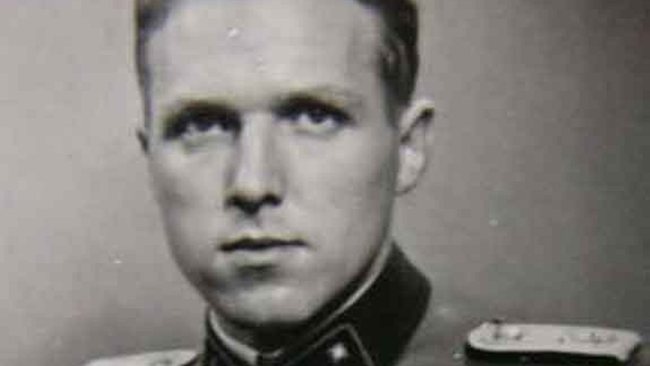
Auschwitz’s Josef Mengele may be the most infamous Nazi doctor, but Aribert Heim, “the Butcher of Mauthausen,” was every bit as sadistic. Notorious for his cruel experiments, Heim was known to “[take] pleasure in conversing amicably with his victims immediately before injecting gasoline into their hearts,” and “displayed baked decapitated heads as paperweights on his desk.”
Unfortunately, Heim managed to escape Germany after hearing that he was to be tried for his crimes (police descended on his house, but by sheer luck he wasn’t home). Although South America was the classic hideout for fugitive Nazis, it seems that Heim was one of a handful who found refuge in Middle East. Specifically, Heim went to Cairo, where he lived under the alias Tarek Hussein Farid. Friends who knew him at the time said that “Uncle Tarek” was an avid photographer, who, for reasons they could not fathom, refused to ever be photographed himself.
Heim apparently died of cancer in 1992, although this only became known after a briefcase of his possessions was discovered in 2007. The Simon Wiesenthal Center initially expressed skepticism as to his fate, noting that he had a “vested interest in being declared dead.” The Center currently considers it very likely that Heim is deceased, although they have been unable to “confirm it forensically.”
Heim’s son later admitted he had known his father’s location all along, and claimed to have been with him when he died. One of the most monstrous Nazis apparently passed away quietly, without ever facing justice, while watching the closing ceremony of the Olympics.
1Inocente Orlando Montano
But while Heim escaped punishment for his crimes, that doesn’t mean we should despair just yet. In today’s increasingly connected world, it’s getting harder and harder for wanted war criminals to simply slip off the radar. Take Inocente Orlando Montano.
As the example of Oscar Romero indicates, Catholic clergy were among the most intractable foes of the Salvadoran government during the civil war. And so, on November 16, 1989, government forces murdered six Spanish Jesuit priests, along with their housekeeper and her 16-year-old daughter. The incident was so heinous that it prompted hearings in the US Congress, which proved instrumental in helping to end the conflict. The United States government had long been the key backer of the Salvadoran military, and 19 of the officers responsible for the massacre had actually been trained in America. The shock of the massacre, combined with the impending collapse of the Soviet Union, resulted in a shift in policy, as the US began to push for a peace deal.
One of the key plotters behind the Jesuit massacre was Colonel Orlando Montano, who was a security minister at the time. After the peace agreement was signed, Montano fled the country, and his whereabouts remained unknown until 2011, when he was revealed to be working at a sweet factory near Boston, Massachusetts. He was promptly arrested by the US authorities and put on trial—but not for the Jesuit massacre or any other war crime. Instead, he was charged with immigration violations, since he had posed as a refugee from the Salvadoran violence, when he was really a perpetrator of it. His sentence, handed down in August 2013, amounted to a mere 21 months.
However, the saga might just have a happy ending after all. While he was on the run, a Spanish court indicted Montano for the murder of the Spanish Jesuits. In April 2015, the US Justice Department agreed to begin proceedings aimed at extraditing him to Spain. It is expected to be a fairly straightforward process. So, while Montano has so far avoided prosecution for his crimes in El Salvador, he will face justice very soon. The arc of the moral universe may be long, but we’ll get there in the end.
Ed Barreras bides his time in Long Beach, California. You can follow him on Twitter.








